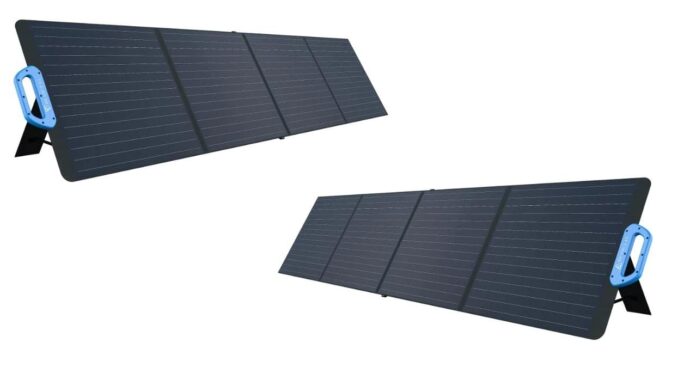Residence needs a high amount of electricity every day. Think of a powercut or a blackout during a hot day in summers. A blackout ain’t a rare issue and all the parts of the world are troubled by power cuts. Therefore, there has to be an alternative to power source, where a 200 watt solar panel comes into action. So, this article will focus on some ways how a 200-watt panel can be useful to you at home.
Benefits Of Using A 200-watt Solar Panel At Home
Power Generation
200-watt solar panels can generate a significant amount of electricity, especially when several panels are installed together. They contribute to the overall power production of the residential system, helping to offset or even eliminate the need for grid electricity.
Space Efficiency
In residential settings where roof space is limited, 200-watt solar panels can be a good choice. Their relatively compact size allows for efficient use of available space, making them suitable for rooftops with size constraints or complex configurations.
Flexibility in System Sizing
A residential solar system can be customized to match the energy consumption needs of the household. By using 200-watt panels, the system can be easily scaled up or down by adding or removing panels as required, allowing homeowners to adapt their system to their specific energy needs and budget.
Cost-Effectiveness
200-watt solar panels are often cost-effective due to their relatively lower price per watt compared to higher wattage panels. They offer a good balance between power output and affordability, making them an attractive choice for homeowners looking to install a solar system without breaking the bank.
Easy Integration
Many residential solar systems employ microinverters or power optimizers, which are small devices that are typically attached to each solar panel. The lower wattage of 200-watt panels makes them compatible with these individual panel-level electronics, facilitating easier installation, monitoring, and maintenance of the system.
Net Metering Benefits
In areas with net metering policies, excess electricity generated by residential solar systems can be fed back into the grid, earning homeowners credits or financial compensation. With 200-watt panels, homeowners can generate a significant amount of excess electricity, maximizing the benefits of net metering programs.
How Many Solar Panels I Need At Home?
The number of solar panels you need for your home depends on several factors, including your energy consumption, available roof space, solar panel wattage, local sunlight conditions, and desired level of energy independence.
- Calculate your average energy consumption: Review your electricity bills over the course of a year to determine your average monthly or annual energy usage in kilowatt-hours (kWh). This information will give you an idea of how much electricity your solar panels will need to generate.
- Consider your roof’s solar potential: Assess your roof’s suitability for solar panel installation. Factors to consider include orientation (south-facing is optimal, but east or west-facing can also work), tilt, shading from nearby objects (like trees or buildings), and available roof space.
Conclusion
It’s highly recommended to consult with a professional solar installer or engineer who can conduct a site assessment, perform detailed calculations, and provide specific recommendations tailored to your home and energy requirements. Speaking of solar panels and consultation, you can reach out to Benebomo for their awesome 200-watt solar panels at the most attractive prices.











